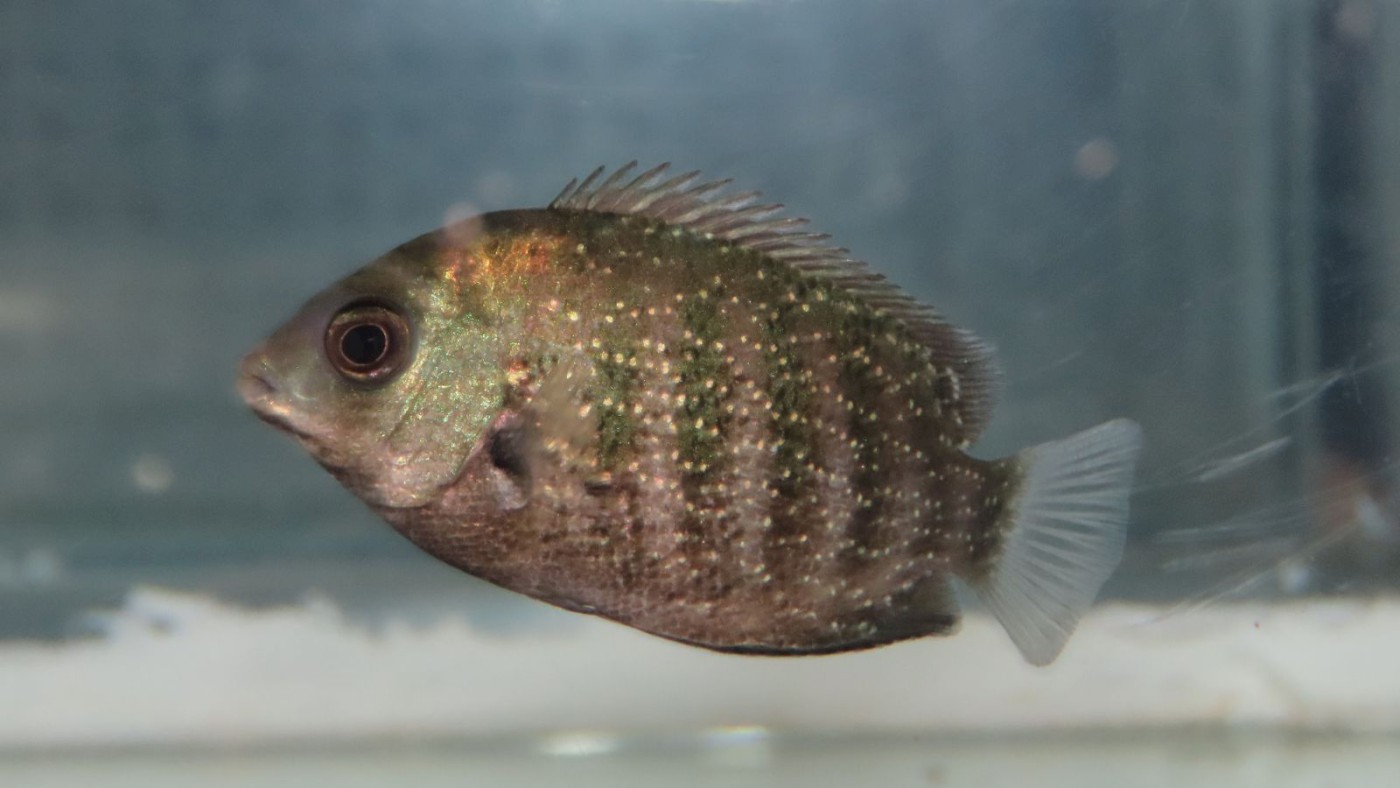
Animals form groups in various ecological conditions, which offer several advantages such as reduced predation risk, better information sharing, and improved foraging success, thereby enhancing chances of individual survival. This makes the choice to join a group important, which is based on the cost-to-benefit ratio, which is dynamic and can change with different sets of environmental and ecological conditions, making it an interesting field of study.
Ahmedabad University’s doctoral student and an alumna of the Integrated MS Class of 2020, Chena Desai, in her study, showcased primal findings on the social preferences of young green chromide (a type of fish), a cichlid species widely distributed across several Asian countries. Conducted with Ahmedabad University Professor Ratna Ghosal from the School of Arts and Sciences, the research suggests that chromides prefer being with their own species of similar size and in larger groups. Through various experiments, they discovered that these fish primarily use visual cues to guide their social choices.
Cichlids, a highly adaptive and diverse family of fish, are found in a range of habitats worldwide, including India, Madagascar, and the Americas. With over 3,000 cichlid species having evolved through extensive adaptive radiation, they exhibit complex social systems such as cooperative breeding and hierarchical structures. They are cognitively advanced, capable of recognising differences in body and group size, and show familiarity and kinship-based preferences, and even individual recognition. Cichlids use various senses to communicate, including visual, auditory, vibrational, and chemical signals, often combining these for complex interactions. However, only three cichlid species are native to India, and all remain largely understudied. Understanding the role of these signals in shaping social preferences, therefore, requires further research.
Chena’s research addresses this gap and examines the social preferences in sexually immature individuals of green chromides using different stimuli and choice-based setups. The study investigated the mechanistic underpinnings regarding the sensory modalities involved in the observed social preferences.
The findings revealed that chromides showed significant preferences towards conspecifics, particularly those of similar body size and larger group sizes. This was observed regardless of whether olfactory cues were present or absent, suggesting a significant role of visual signals.
The research findings, which constitute a major part of Chena’s PhD work, were presented in the paper titled “Sexually immature green chromides exhibit choice-based decision making in the context of social preferences,” published in the special issue on ‘Advances in Cichlid Research VI’, in the journal Hydrobiologia: The International Journal of Aquatic Sciences.